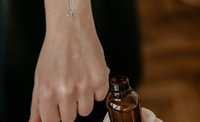MEDICINE | ALLERGY | ALLERGOLOGY
Help with your allergies
Allergies can cause skin problems, itchy eyes, hay fever and asthma. More and more people suffer from allergies.
This overreaction of the immune system to genuinely unproblematic substances such as pollen can considerably reduce your quality of life.
We will help you with unpleasant symptoms and, if possible, offer you long-term protection against a new outbreak of the allergy.
WE TREAT THESE ALLERGIES AMONG OTHERS
Respiratory allergies
(Complaints such as itchy eyes, runny nose and blocked nasal respiration to shortness of breath and asthma)
Food allergies
(Symptoms such as abnormal sensations in the mouth and throat and symptoms of the gastrointestinal system)
Skin allergies
(Symptoms such as eczema and itching on areas of the skin that have come into contact with the incompatible substance)
Do you have any questions? >
Diagnostics as the first step
Treatment begins with allergy diagnostics, because if we identify the allergen that triggers it, only then can you avoid it in the future. We carry out various allergy tests. This includes the PRICK test, whereby we test respiratory and food allergens. For this, it is necessary to apply a small dose of the allergen to the forearm or insert a small amount of the substance into the skin. After only 20 minutes, we can see whether redness, wheals or other typical reactions have occurred.
It is then clear whether it is a so-called type 1 allergy.
Alternatively, it is possible to use the patch test to search for contact allergies (type 4 allergies). The contact reactions to the allergen usually only occur after several days, which is why we test over this period of time.
If possible, we will stick a test patch with the allergens to be examined on your back on a Monday. After 24 and 72 hours, we take test readings at the clinic. Redness and swelling under the patch can indicate the presence of a contact allergy.
Tailor-made therapy
After successfully diagnosing your allergy, it is possible to treat the symptoms symptomatically. For this purpose, eye drops, nasal sprays, antihistamine tablets and ointments are used.
You will also learn how you can prevent or avoid the allergen in everyday life in the future. Allergies to pollen, dust mite or venoms, however, are much more complicated than a nickel allergy. Specific immunotherapy, also known as hypo- or desensitisation, is therefore required. For hyposensitisation, we give you the allergen in slowly increasing amounts so that your immune system slowly gets accustomed to it.
Injections into the skin or oral administration in the form of drops or tablets can be administered at home. In many cases, hyposensitisation can alleviate the allergic symptoms after just a few weeks.
For a lifelong success, depending on the type and severity of the allergy, therapy over 3-5 years is necessary.
HOW TO FIND US
Dr. med. Reinhard Pettker
Rankestr. 2
10789 Berlin
Phone: 030 40 36 86 140
E-Mail: rezeption@myskin.berlin
BVG-CONNECTIONS
U3, U1, U9: Kurfürstendamm
& U3 Augsburger Platz
Bus: 109 / M19 /M29 /110 /101:
Kurfürstendamm
